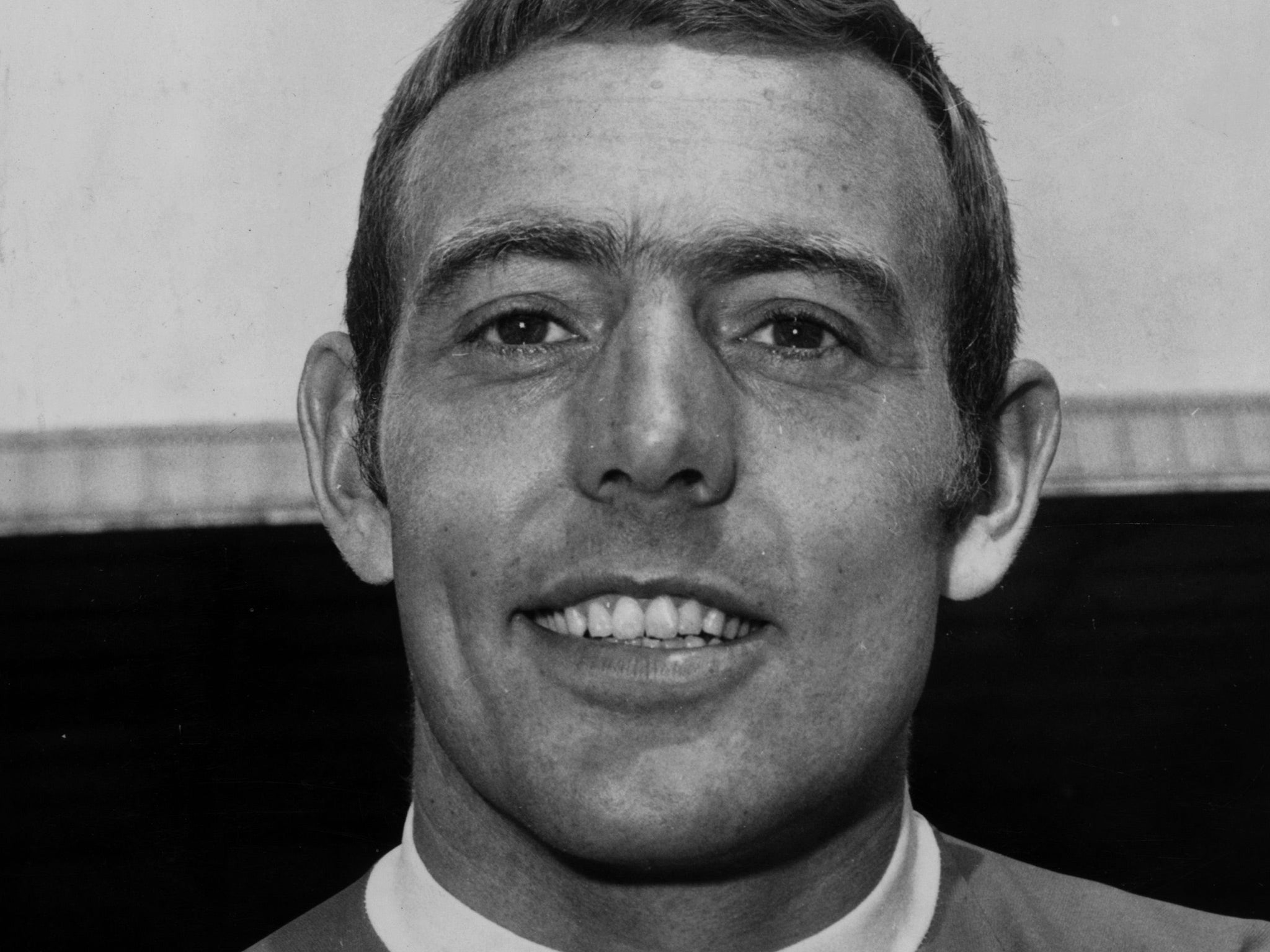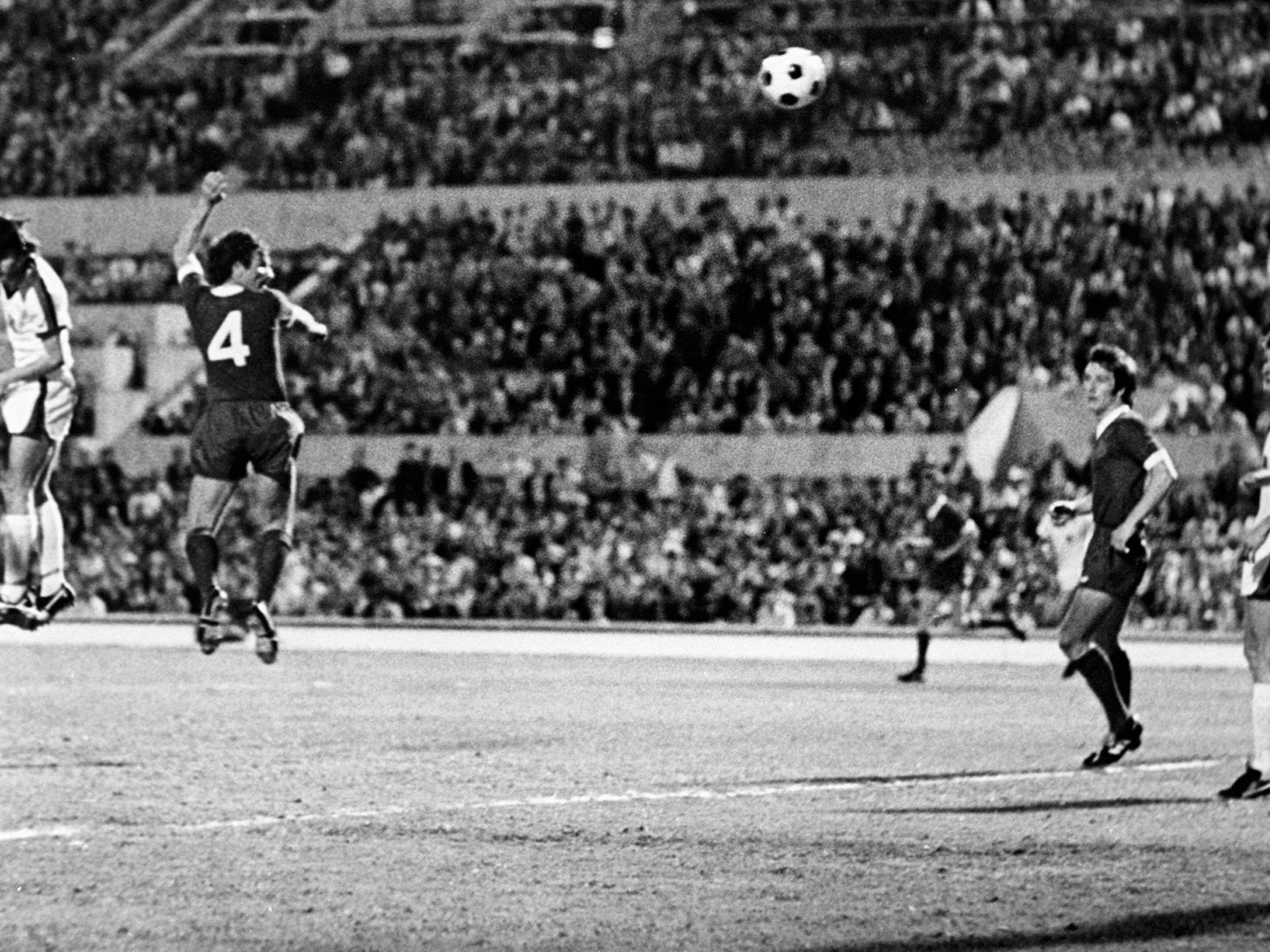PFA told me research into dementia was futile as 'women get it too', says former Liverpool forward Ian St John
The players' union told St John, who has seen his ex-teammates struggle with neurological conditions, that there was 'nothing they could do'

Your support helps us to tell the story
From reproductive rights to climate change to Big Tech, The Independent is on the ground when the story is developing. Whether it's investigating the financials of Elon Musk's pro-Trump PAC or producing our latest documentary, 'The A Word', which shines a light on the American women fighting for reproductive rights, we know how important it is to parse out the facts from the messaging.
At such a critical moment in US history, we need reporters on the ground. Your donation allows us to keep sending journalists to speak to both sides of the story.
The Independent is trusted by Americans across the entire political spectrum. And unlike many other quality news outlets, we choose not to lock Americans out of our reporting and analysis with paywalls. We believe quality journalism should be available to everyone, paid for by those who can afford it.
Your support makes all the difference.The former Liverpool player Ian St John has said that his attempts to persuade the Professional Footballers’ Association to commission research examining possible links between dementia and football failed because the union told him “women get it too.”
As new research put the union under renewed pressure from its members to set a timescale for a detailed examination of possible risks and how they might be mitigated, St John said that he had been trying for several years to push the PFA to launch research because a number of Bill Shankly’s former Liverpool team are struggling. Because “women of our age suffer from dementia” the PFA had said there was “nothing they could do,” the 78-year-old said.
Both St John and the family of Jeff Astle, to whom the PFA first promised research 15 years ago, spoke at length on the BBC’s Victoria Derbyshire programme on Wednesday, with St John reiterating his frustrations with a union he feels should take responsibility for research. St John also addressed the issue last year in an interview for a book, Liverpool Captains, which revealed the struggles his ex-teammates Ron Yeats and Tommy Smith have experienced with neurological disease.
“It’s true that women our age suffer from dementia too, but in the same numbers as men in our industry?” St John asked. “I’m not talking about men in our country in general who get Alzheimer’s. I’m talking about the percentage of our little group of professional footballers from the 1960s. I believe this is an occupational injury, a health condition caused by our job as footballers.”
The family of Nobby Stiles, who is now extremely frail after nearly 15 years struggling with dementia, expressed hope on Wednesday that the new research published by Swansea University and University College London this week would be a “game-changer,” in securing the research which might help future players to comprehend the risks attached to being among the most frequent headers of a football.
The research included post-mortem examinations on six players who suffered dementia and revealed that all of them had suffered from a tearing to a brain membrane consistent with chronic, repetitive head impacts from playing football. This might point to a link, though further study is needed, the researchers said.

Stiles’s son, Rob, said that the family believed the football authorities were reluctant to take up the problem for fear of a legal case and the need for a settlement similar to that made by the NFL in the United States. There has been no finding or admission of liability by the NFL under the terms of a class action settled by league at a very early stage. NFL lawyers say the risk of successful legal action in the UK here is far more limited.
“We are not looking to sue anyone,” Rob Stiles said. “We are just asking for some kind of research to help future players have an understanding about any risk and make an informed choice about how they play and train.
“No-one is suggesting heading should be taken out of football. If you look at a lot of the players who we know have been affected, you see that many are centre forwards and centre halves or players who headed the ball repeatedly in training. Dad was so determined when it came to heading the ball. He was only 5ft 5in but he would do extra training when it came to heading.”
The Stiles family suspect that the weight of the football may be less significant than the number of times players head it, and that the risk of brain disease in old age may be mitigated for players by a training regime in which there is less heading. Scientists in the US estimate that 90 per cent of headers undertaken by those who head the ball most often occur in training.
Mr Stiles’ also pointed to the need for PFA pastoral and practical support for players, such as a telephone number that a wife or family can call for advice on consultation and care. “When dad was diagnosed and started to go downhill we didn’t know who to turn to,” said Mr Stiles. “Even in geriatric medicine and psychiatry, you won’t necessarily find the person who specifically understands your needs.”
The PFA, which on Wednesday announced the launch of fund to raise awareness of skin cancer, said that the FA is coordinating moves towards research, which both the governing body and FA are paying for.
The FA indicated on Wednesday that it is hopeful research will be commissioned by the end of this year, though no specific academic or medical establishments are thought to have been engaged yet. The governing body said it does not want to rush to commission a study and then find that the terms of engagement are wrong, as that could leave vital questions still unanswered.
Join our commenting forum
Join thought-provoking conversations, follow other Independent readers and see their replies
Comments